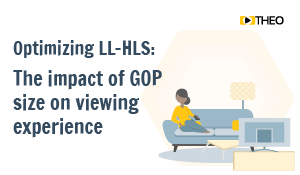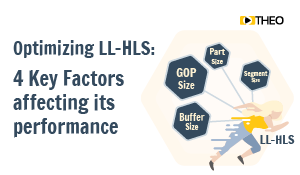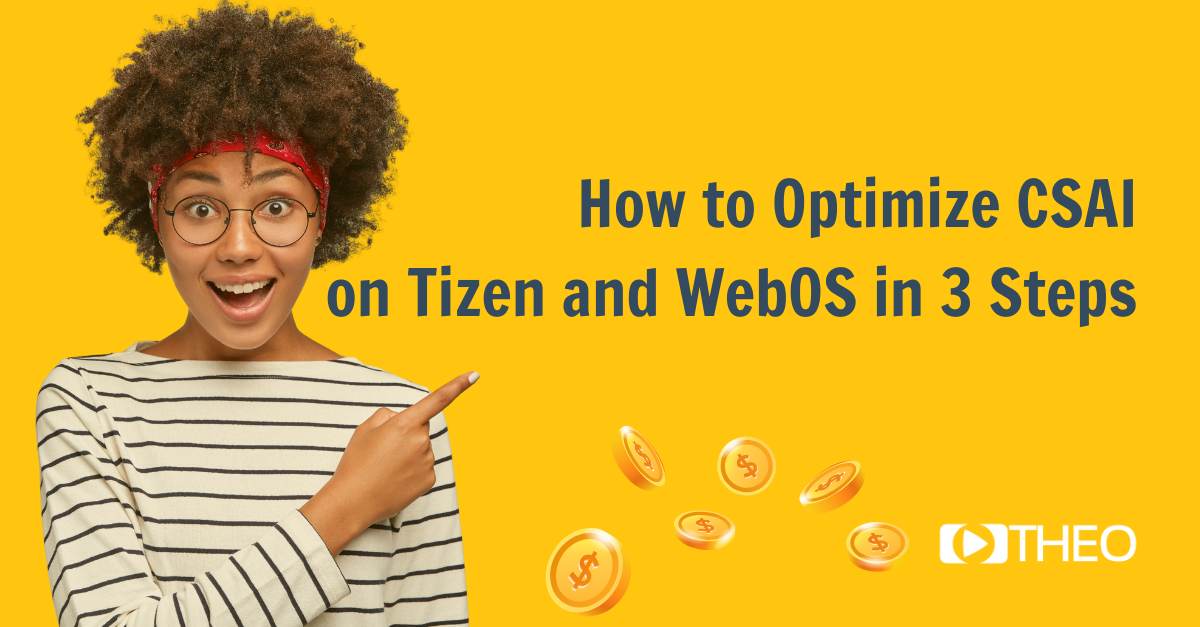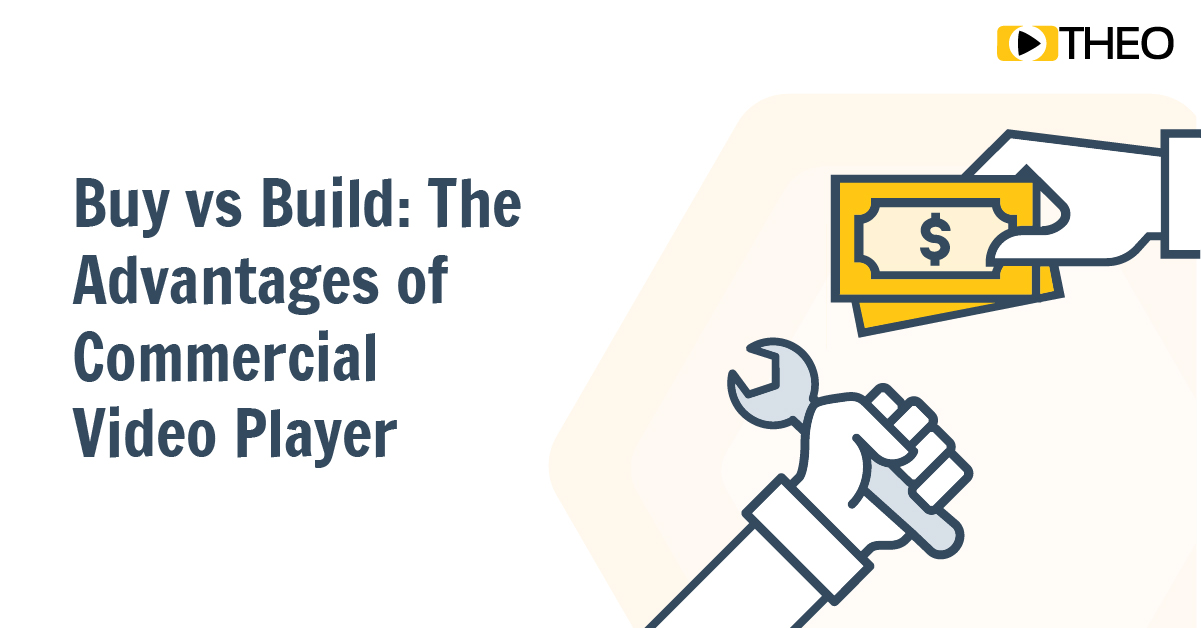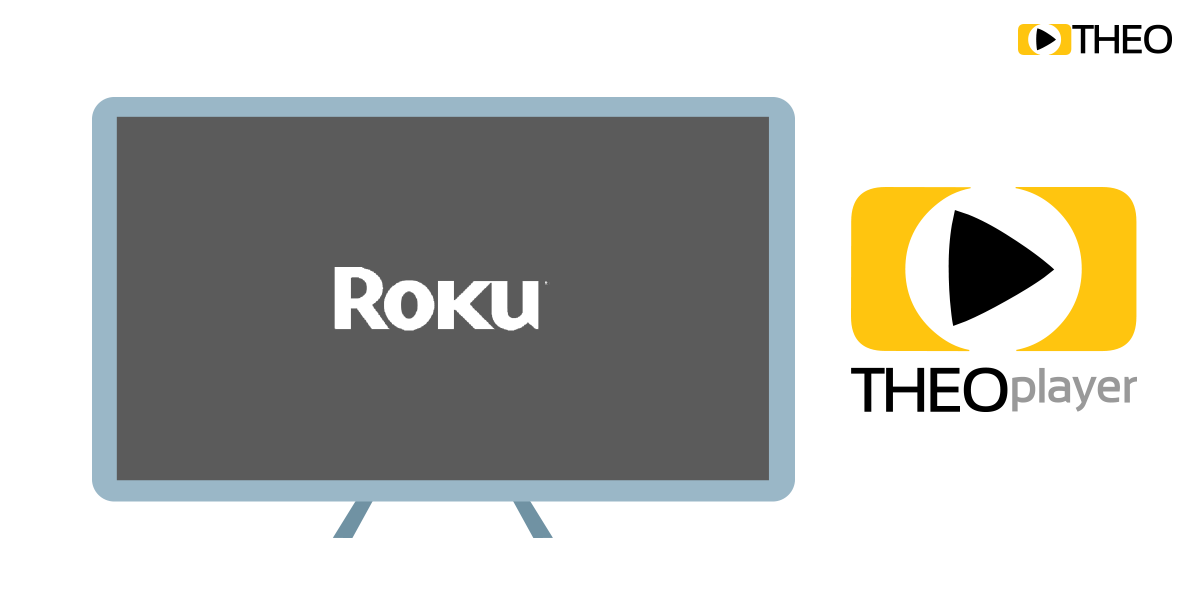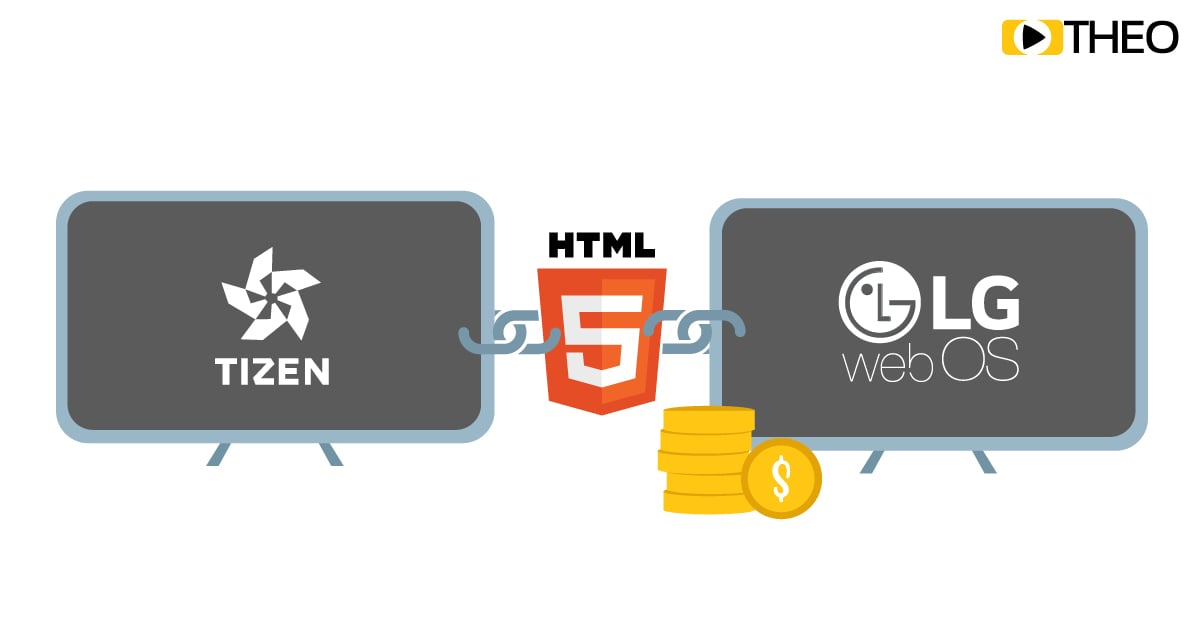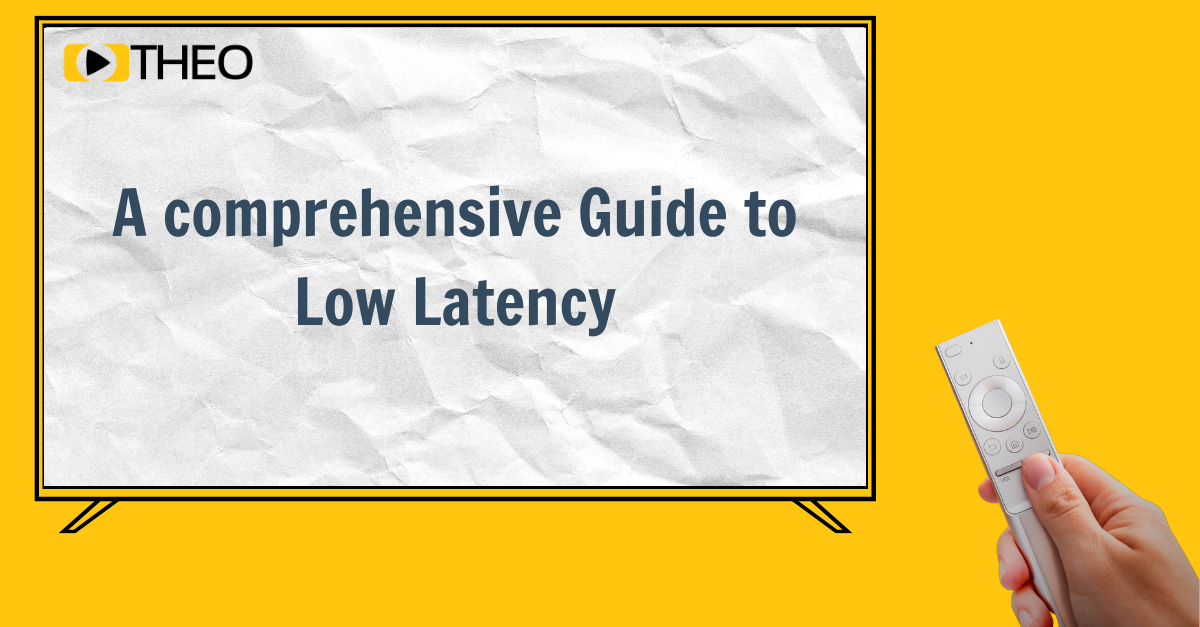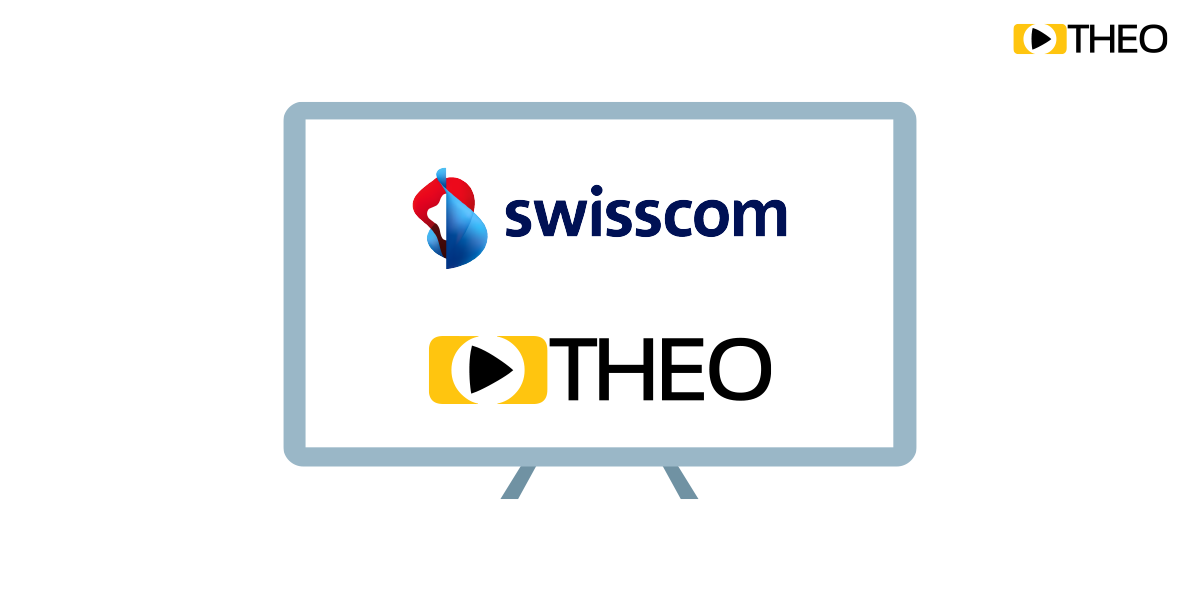Optimizing LL-HLS: The Impacts of GOP size on Viewing Experience
by Negar Hajihoseini on September 14, 2021
In the previous blog, we’ve covered the 4 key factors affecting the quality of low latency streaming experience when utilising Apple's LL-HLS protocol. In this blog, we will take a dive into the importance of Group of Pictures (GOP) and its impacts on the overall viewing experience. A …
Optimizing LL-HLS: 4 Key Factors affecting its performance
by Negar Hajihoseini on September 9, 2021
In the previous LL-HLS series, we’ve covered how it works and how the end-to-end solution should look as well as suitable use cases and THEO’s recommendations for LL-HLS implementations. In this blog series, we want to focus on how to tune better for Low Latency Streaming with an intr …
How to Optimize CSAI on Tizen and WebOS in 3 Steps
by THEO Technologies on August 24, 2021
One notable change as the globe struggles with the pandemic's effects is the rise of OTT consumption through smart TVs. As more people turn to their living room TVs for entertainment, businesses have a unique opportunity to reap benefits from this trend. However, tapping into the adve …
Buy vs Build: The Advantage of a Commercial Video Player
by Craig Ferguson on July 20, 2021
When planning (or re-evaluating) your approach to the video player component of your video delivery workflow, you will more than likely at some point reach a crossroads when considering the decision to follow the open-source or commercial video player path. Whilst both options are ent …
Rolling out Roku: THEOplayer?
by Thijs Lowette on April 21, 2021
"Rolling out Roku: THEOplayer?" is the last part of a 3-part series. Read up on "Rolling out Roku: Why?" and Rolling out Roku: How?".
HTML5 Player: A Cost-effective Way to Bring Video to Tizen and WebOS
by Mathias Craps on March 23, 2021
When you design a strategy that fits your streaming market, you will notice that there are a lot of devices and platforms to cover. In this article, we will try to shed some light on Tizen/WebOS applications and explain why we provide our player on these platforms as a HTML5-based sol …
A comprehensive Guide to Low Latency
by THEO Technologies on February 21, 2021
Latency, low latency, ultra-low latency are becoming increasingly important. New developments like LL-HLS and CMAF-CTE both confirm and support this statement, in addition to other streaming protocols such as webRTC and RTMP. With all the technology and the definition of latency, it c …
THEO Technologies enables Swisscom to expand Blue TV to connected TV with THEOplayer
by THEOplayer on November 18, 2020
THEO Technologies enables Swisscom to launch its blue TV streaming service across Connected TVs using its Universal Video Player technology.
Speak the Language: Multi Audio and Language Localisation
by THEOplayer on July 23, 2020
As video streaming rises globally, the challenge is not only to get your content to your viewers’ screens, but also in their language. Only providing your application, audio and subtitles in one language can present a barrier to reach a wider audience, or miss a majority of viewers co …
Ultimate Mini Guide to ABR Logic
by THEO Technologies on March 3, 2020
A bitrate indicates the speed (which can also determine the cost) at which video content (or any other data) is delivered. It represents the amount of bits per second that are transmitted digitally across a network. In a video context, higher bitrate usually indicates a higher quality …


